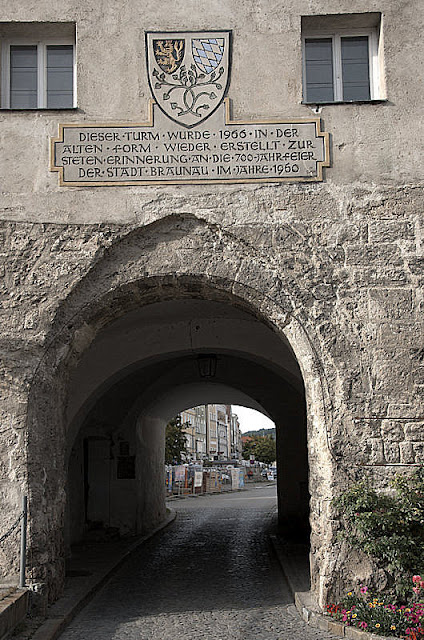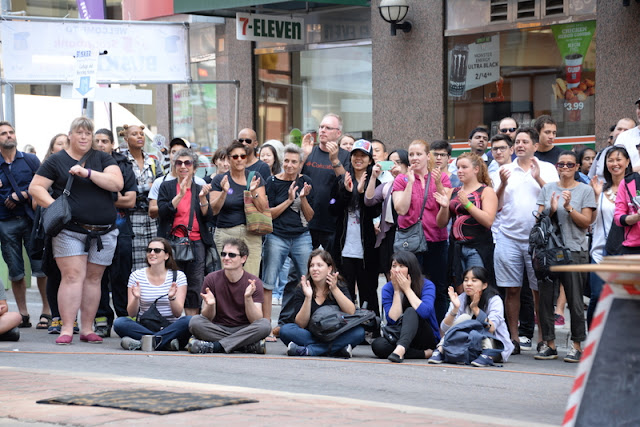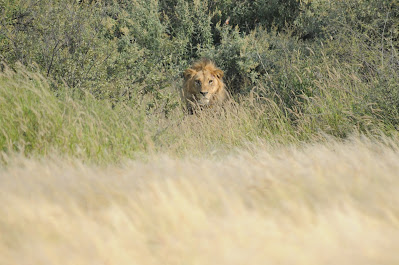I know that nobody will read this epistle. I am posting it for my own fun.
ALONG
THE
CHOBE RIVER
and
OTHER
STORIES.
ALONG
THE CHOBE RIVER
“Sign
here, and here” said the Chief of the Chobe Rangers, pushing a two
page document across his desk toward us.
John,
being a lawyer, studied the paper carefully. Then he and I dutifully
signed at the places indicated by the Chief Warden's sturdy finger.
The
document, written in Tswana and English very simply stated that we
would hold harmless the Country of Botswana, and all persons
connected with the duties of the Anti-Poaching Patrol if, during our
freely undertaken walk, accompanying two Rangers on their assigned
route, any 'misadventure' should occur during which our persons or
our belongings were injured, damaged or otherwise were negatively
affected.
“You
will follow their admonitions and always stay close to them” the
Chief Ranger almost growled.
He
pointed to the two young rangers and with a wave of his hand he
indicated that we were dismissed.
As
we left his office, at Ranger Headquarters, John said: “Are we sure
that we're doing the right thing?”
“No,
I am not sure, but the opportunity to walk with two Anti Poaching
Rangers is too inviting. And anyway, it's too late to back out now.”
I answered, not at all certain.
“My
name Akanyang. I am leader. I say, you do.” Then he added with a
smile: “Please”
“I,
Baruti,” the other young ranger told us.
We
shook hands while we told them our names.
The
'headquarters' was accommodated in a sturdy shack, surrounded by an
improvised looking, wooden fence. The two Rangers shouldered their
weapons.
John
looked at them and commented somewhat dubiously: “These rifles look
as if they had seen better times since World War 2.”
It
was early morning and the chill of before Sun-up time still lay in
the air. A slight breeze moved the branches of a grouping of Umbrella
Thorn Trees.
“We
now go” Aki said. John and I had shortened his name from 'Akanyang'
to the more comfortable Aki.
At
a slow pace we started on our planned ten kilometer oval route, which
was to return us to headquarters, near which our tent was pitched,
somewhere around five o'clock in the early evening.
“Let
me help you carrying your gear,” John offered.
“I'd
rather carry this stuff myself, but if you want to shoulder the
tripod, I would be grateful.”.
Three
camera bodies, five lenses, and other miscellaneous junk made for
quite a load.
“ The
day I can no longer carry my cameras, I'll quit taking pictures.” I
said with some bravado.
Along
a path, or what passed for a path, the going was easy and, although
we walked slowly, we made relatively good time.
A
small group of chattering Baboons seemed to accompany us, swinging
from branch to branch. When the distance from tree to tree was too
large, they slid down one Mopane tree, limped on all fours to the
next one and, as John said, like “greased lightening” they were
up it, constantly 'talking' to each other and, it seemed, to us.
The
going became a little more complicated. The 'stay-a-while' tree with
its hooked thorns growing so close to the edge of the narrow path
forced us to slow down and to ever greater caution. Even the Baboons
skirted this bush carefully.
“Dammit”
John cursed under his breath. “got caught by one of those little
devils. Can't get it out without tearing my shirt.”
“Take
little knife. Cut. Take off shirt. Pull thorn other way. No tear
shirt.” Baruti said with a satisfied smile.
“More
careful” Aki added.
Baboons
silently swung from branch to branch.
The
Sun rose throwing long morning shadows.
To
our right, from time to time, we could see the Chobe River.
The
morning became warmer.
“Won't
be long, before I'll take off my shirt” John said.
“No
take off shirt” Aki suggested. “Better not, flies like light
skin”.
Pointing
to himself, he added: “No flies on dark skin.”
Aki,
the leader of our quartet stopped. Pointing off to his left, he said:
“First Impala”
And
there he was. A beautiful male adult. With wide swung horns, he
looked back at us over his left shoulder. There seemed to be a
challenge in his stance.
Finally
the Impala disappeared in a thicket.
“This
good country for Impala” said Aki.
“Also
many Elephants” Baruti added.
I
could feel damp over my left shoulder and shifted my Camera bag to my
right.
Slowly
we continued our hike.
Our
two Rangers, almost in unison, shifted their rifles.
“You
know” John said, “these 'Anti – Poaching Rangers have 'shoot to
kill orders' if they find a poacher with a dead Elephant or Rhino.”
Aki
had heard and understood this comment.
“This
is so” he said, “last week big fight with two poachers. One dead,
one hurt bad.
No
more poachers here. That reason you may come with Baruti and me.”
For
a while we continued in silence.
“Here”
Baruti had stopped and pointed to a scull and two curved horns of a
Sable
Antelope. “This Kwalata” he continued, using the Setswana name.
“What
might have happened to the rest of the bones?” John mused.
“Meat
eaten by Lion, Wild Dogs, Jackal, Vultures, Hyena also eat all bones.
Much strong bite” Aki explained.
**********************
Being
the oldest member of our Quartet I dared suggest a short break.
The
Sun had risen higher and I estimated the temperature to hover around
30 Celsius in the shade.
“soon
we rest” Aki said. “half hour more hike. Then rest.”
Our
walk took us along a little rise and there a most wonderful sight
awaited us.
A
small group of female Impala, first peacefully grazing, then, as if
on command, all turned their heads and studied an Elephant who had
quietly come up from the bushes below.
The
Impala seemed to know the Ele well.
He
was no danger to them.
All
their attention quickly returned to grazing.
************
“If
we had had a Hollywood director, he could not have composed a more
beautiful scene”
Johns
voice showed his emotion.
We
lingered there for a while and I took not fewer than 50 images with
both cameras.
Hand-held.
There was no time to waste setting up the tripod.
Walking
slowly through dense bush land, crossing clearings and stepping over
fallen trees we made slow progress.
“We
seem to be coming close to the Chobe” John said.
“You
right” said Aki. “Soon come to first place rest, we visit
friend.” he continued.
The
sun had risen high.
Noon
was coming close and even in the shady places the heat of the day had
become oppressive.
Our
first resting place cannot come soon enough, I thought.
And,
as if on command, there it was.
At
the foot of a shade giving Mopani, a fallen tree offered comfortable
seating for all four of us.
John
took this shot. I'm the one in the middle.
“The
first thing I need is a long cool drink” John ventured.
Aki
and Baruti unwrapped sandwiches and a large flask of what they called
'strong tea.'
“Here,
you try” Aki offered the flask and out of sheer curiosity I took a
sip.
I
had never before tasted such a bitter liquid and my face seemed to
show it.
Aki
and Baruti laughed uproariously.
“This
tea made from plants grow here” Baruti offered. “Very good. Make
you steady go behind bush with spade.”
John
and I dug into our provisions, with closest attention to liquid
refreshment.
Clean
water with a dash of lemon juice. Home-baked black bread and thin
slices of meat from a Kudu completed our snack.
“I
go, visit friend. Baruti stay with you.” Aki said.
Slightly
worried, I asked: “There are no poachers?”
“No”
Aki assured us. “Coupla days, one killed, one wounded. Poachers now
stay away from us.” he continued with some pride in his voice.
Then,
looking at me with some real or faked concern, he continued:
“Your
shirt, red. No good camouflage. Better you take my shirt. Green.”
Out
of his small back bag he pulled his spare green shirt. I slipped into
it, noticing that he was considerably smaller around his chest than I
was. But if I buttoned only one button it served its purpose.
“Now,
good camouflage. Poachers no see you” Baruti laughed.
“Come”
Aki said. “Good photo soon!”
Not
a hundred meters from our resting place, the bush stepped back and
down the slight embankment, a large field of tall reeds.
In
front, almost leaning on a palm tree, a thatch-roofed reed hut with a
small encircled ante-room.
Photographer's
luck was on my side. Just then, a woman with a child on her back came
to this abode.
Aki
called to her. Hey! Dumela! Sholana.
She
waved at Aki and waited for him in obvious anticipation.
In
his back-bag Aki carried some provisions for Sholana and her two
children.
“Ev'ry
Ranger and folk from her tribe bring provisions. Ever'body love
Sholana.”
Back
at our resting place, Baruti told us the story of the beautiful
Sholana and the dashing Katlego.
A
member of the proud tribe of the 'Tswana', Sholana was the undisputed
beauty.
Each
male Tswana desired her, because she was not only beautiful, but
diligent and in the art of cooking, an absolute 'past master'. Her
dexterous fingers produced the most beautiful ornaments for both, men
and women of the tribe.
Wherever
she went, although modest in demeanor and appearance, Sholana was the
center of attention.
After
her father had died in a hunting accident, he was shot by a 'white
hunter' who claimed to have mistaken him for an Impala, her mother
said: “It is time for you to find a man, a husband who will look
after you and me.” She smiled a little.
“You
are most popular”, she continued, “You can choose whomever you
like.”
“This
is the problem” Sholana said. “I like them all, but I love none.”
“Oh,
what is love” her mother said. “Love comes and 'Love' goes, but
'Like' stays.
But
Sholana remained steadfast. “I will wait” she insisted.
April
came and with it the hotly anticipated two day 'Maun Festival'.
Although Maun was about two hiking days from Sholana's Village, she
and about a dozen young men and women set off for this year's
high-lite.
It
happened in Maun.
Sholana
found her love.
Katlego
was tall, slim, strong and in his eyes a light shone, which seemed to
shine for Sholana only.
For
two days they were inseparable. They listened to music together, they
went to see dancing contests and they danced together.
“It
is, as if we had danced together always” Sholana said.
“And
so it shall be. We shall always be together! And not only on the
dusty dancing area.”
On
the third day they had to part.
“I
will finish my work and then I come and we will be together for
always.” Katlego said.
Sholana
felt a hot wave rising from her loins to her cheeks.”
“For
always?” she asked.
“Yes,
for always!” he replied.
Much
teasing and bantering Sholana had to take from her friends during the
hike home, to their native Village. She enjoyed the teasing and the
barely veiled innuendos.
No
sooner had the group reached home, than Sholana selected a small plot
of land, close to a field of reeds and right next to a palm tree..
Then
she started to build.
There
was enough building material.
Reeds
and hard packed earth and sturdy branches from the nearby Mopane
stand, for corner posts and roof supports.
While
the building was going on, Sholana's mother spoke to their 'Kgosi'
for approval of the marriage. A poor woman, she paid the required
fee to the Tribe Elder.
Many
of Sholana's friends contributed and so the wedding took place.
Although,
by tradition only married persons are permitted to attend at a
wedding,
Sholana
achieved an exception to this ancient custom.
Katlego
had arrived and nothing stood in the way of the marriage ceremony
taking place.
“Where
shall we live?” he asked.
Sholana
took him by the hand and led him to the reed house.
“This
is where we shall live.” she said.
After
some time, Katlego was accepted to the post of an Anti Poaching
Ranger.
He
was also an accomplished fisher man.
Sholana's
handy work, producing body decoration became popular throughout her
tribe and beyond. Her ideas were attractive, her workmanship was good
and her prices reasonable. People said that Sholana and Katlego were
the handsomest and happiest couple of the whole Village.
As
the years went by, two children were borne and happiness knew no
bounds.
Until,
one day, Katlego did not return from one of his fishing trips in his
hand-made canoe-like single boat.
Sholana
waited until the morning. Then she made her way to the Kgosi and
asked for help.
At
Sunrise every able bodied male moved out on the search, organized by
the Kgosi.
They
searched on land and in twelve single boats they searched on the
water.
They
found him. His boat overturned and destroyed by what could only have
been a Hippo and his body torn by the sudden, powerful body
revolutions of a mighty Croc.
The
women of the village took Sholana into their care.
The
Men sewed the remains of Katlego's body into the skin of a black Bull
and the tribe commemorated one of their finest friends in solemn
burial ritual.
Sholana
never saw the destroyed body of her beloved and therefore she always
remembered the tall, strong, gentle man who was the love of her life.
When
Baruti had finished the story of these two passionate lovers in his
fragmented English, tears ran down his cheeks and, for a while, John
and I could not speak through our closed throats.
Akanyang
had delivered the weekly supply of things needed by Sholana.
He
returned to us.
Our
'Anti Poaching Ranger' hike continued in silence.
At
the moment I took this image, I knew nothing of this tragic tale.
**************
Sholana's
reed hut, hugging a Wild Date Palm tree.
A VERY CLOSE CALL:
Sometimes
our trek took us close to the river, only to veer again more and more
toward inland regions.
“We've
seen many Impala, Waterbucks, Kudu, I think there was a Cheetah. But
all of them from quite a distance.” I said to no-one in particular.
Baruti
had heard my remark and said:
“When
walk, animal smell man and run away. All wild animal fear man. When
on truck, animal only smell stink from engine. Cannot smell man.
Animal no fear truck smell, no run away.”
“I
could not have explained it better” John said.
In
spite of this limitation, the walk was wonderful and exciting.
For
some reason, John and I became somewhat pensive. We walked in
silence.
Aki
in front, then John and I, while Baruti brought up the rear.
“Walking
simply gets you closer to Nature. Closer to the smells and sounds and
you can actually feel life around you.” John continued.
Soon
we entered a stand of Mopani trees. John commented that, widely
spaced from each other, they made for easy walking.
“They
far apart. They no like each other” Aki smiled.
A
small herd of Cape-Buffalo were staring at us from the end of this
Mopani stand.
“We
now stop and not make angry Buffalo.” Aki said. “Wait till
Buffalo move off”
After
a while, as if he had seen enough, the dangerously horned animal
turned and moved off at a slow pace.
From
previous Safaris and from other guides I knew the danger of an
irritated Buffalo. Known for being unpredictable it is best to avoid
too close a meeting with them.
***************
The
Sun had long ago crossed its Zenith, and a certain tiredness had
crept into my legs.
I
do not mind Aki's signal to stop and to remain totally quiet.
“I
think I hear something” he says.
Baruti,
who had come up from his last position, also stopped and seemed to
listen intently.
“Is
Lion growling” he says.
Aki
whispers: “stay very quiet. I go, climb tree and see what beyond
bushes.”
He
climbs the Mopani, which stands near, having grown, for some reason,
at a sixty degree angle.
I
can hear the wind brushing through the fronds of the palm tree and
the leaves of the Mopani.
The
sound of a dry branch breaking as Aki makes his way up to see, as he
says, “what beyond”.
John
stands beside me. Watching.
I
check my camera. All settings A-Okay.... Lighting slightly behind me
…
I
take a shot, or two, of Aki up the Mopani.
I
remember thinking:
“This
is Africa! Palm trees, Mopani trees, Heat, Baboons, Impala,
Scintillating sense of anticipation.
The
Baboons have fallen back and the Impala have moved off in the
opposite direction.
Aki
on his observation post, to “see what beyond”
(left upper corner)
Baruti
has disappeared. He takes a wide circle to come to the end of the
clearing from the other side.
I
look straight ahead.
There
are dense bushes. Visually almost impenetrable.
Among
the dark green foliage I see something light brown.
I
focus on it.
It
is the unmistakable head of a male Lion.
I
take a quick, poorly focused picture..
The
branches confuse the automatic focus selection.
The
Lion head moves a bit from side to side.
I
have just time for one more shot.
The
Lion breaks through the bush.
I
hear branches breaking.
The
Lion is now tearing up the earth beneath him.
He
is thundering at us with astonishing top speed.
I
remember thinking:”The tripod will give me no cover.”
John
stands beside me.
Like
myself, he is motionless.
Mesmerized.
The
Lion is, I think, within five meters of us.
Actually,
one does not 'think'.
I
do not 'think.'
Am
I afraid for my life?
Probably.
Out
of the corner of my eye I see Aki.
He
almost flings himself from the tree.
Half
way down he jumps.
Rifle
in outstretched hand he performs a roll.
Lightening
fast, the Lion, mane flying, eyes glowing
makes
an incredible ninety degrees turn
Dust,
dry leaves, branches swirl around us.
For
a moment I lose sight of the Lion.
Then
the world seems to turn silent.
He
is gone.
Beside
us and slightly behind stands Aki.
He
had practically tumbled down his observation tree.
Have
you ever seen a Black Man turn pale?
His
face was 'single color gray'.
Aki
is shaking.
Baruti
just leans, head down, on his rifle.
Aki
places his right hand on my shoulder.
With
his left, he hugs John.
“Lion
havin' late Lunch.” he says. “Lion afraid you take his Lunch.”
“Lion
wants eat Impala”
“Lion
no want eat nice Canadian men.”
John
and I manage a pained laugh.
Although
the danger is over, all four of us want to return to the Ranger
station,
and
John and I to our camp.














































